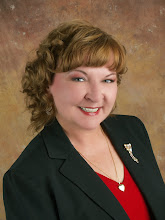I like Ken Ferree. No, I really, really like him. When he was head of the Mass Media Bureau at the FCC, I met with him and felt like I was talking to a “pal.” So I am thrilled that he is now Chief Operating Officer for the Corporation of Public Broadcasting. The folks who dole out the money to PBS and community radio stations. Ken is personable, understands the importance of local media and seems to be an advocate for the public. The bad press about Mr. Ferree, I think, stems from who he was working for, Michael Powell. And that goes to the man-who-signs-your- check-syndrome. Ken could do no more than his boss, Mr. Powell, was willing to do for the public interest which is why I find this move to becoming COO for CPB so enlightening. Maybe I was right about this man after all, maybe he does have the public interest in mind.
Then there’s Charlie Firestone (Charles as he is known in proper circles) Executive Director of the Aspen Institutes’ Communications and Society Program. They just released a report calling for the cease of all regulation, that deregulation rhapsody so often sung by the industry. My heart fell. For whatever reason I thought that the Aspen Institute was supposed to be:
“…an international nonprofit dedicated to fostering enlightened leadership and open-minded dialogue. Through seminars, policy programs, conferences and leadership development initiatives, the Institute and its international partners seek to promote nonpartisan inquiry and an appreciation for timeless values.”
I was truly convinced that the Aspen Institute attempted with integrity to find solutions to pressing problems. Bring a bunch of people together in a lovely atmosphere at the Wye River compound or in Aspen Colorado, and talk intellectually and honestly about the issues of the day and find real solutions. I was a part of an Aspen Institute about “voter education” and it was clear from the report that the mainstream media was not doing its job of public service as required by their licenses and it was up to PEG to fill in the blanks in media democracy at the local and maybe even state level. It was one of the things I did while executive director of the Alliance for Community Media that I was truly proud of because it become inherently obvious through the discussions, that commercial media had no interest in following state elections or local politics. And it just made PEG shine all that much brighter.
Now this. A who’s who of industry (no wonder since it was entirely industry sponsored) and even on the political side there were no friends, save Colin Crowell of Markey’s office.
“There are a lot of broken parts to the communications regulatory scheme right now,” said Charles Firestone. The press release goes on to brag “Proposing a major revision of the Communications Act, the report suggests that the competition among broadband DSL, cable modems and other players such as wireless broadband providers will render much of the current regulation unnecessary.”
Oh…really?
I am sure that if the group had been a little less lop-sided, like maybe inviting Elizabeth Beaty, Executive Director of NATOA, the report might have been a little less skewed. I did put her name in as a potential participant for future conferences, but I guess that sheet of paper was eaten by the dog.
My experience was that after the day’s work was done there was a really terrific cigar circle that formed on the back deck. Me, being a person who actually likes the smell of cigar smoke pulled up a chair. I did notice that the two other women at the cigar fest, like me, were set on the outside of the circle while the men did their routine of smoking those big old cigars and discussing important bizness. And I, like the other women, gave up hope quite fast of being part of the discussion and left the men to themselves.
So maybe like the parlor games of old, the Aspen Institute is really a “good old boy’s club?”
T’would seem.
I thought about this blog all day. I really did like my Aspen Institute “experience” and I pondered whether or not I would ever be invited back should I write my scathing comments. Then it occurred to me “Do I care?” And the answer came…like manna from heaven…
“Nope.”
If people are being intellectually dishonest, stacking the deck and just massaging their egos, then I want no part of that.
So puff your big ole’ stogies my friends. Because no matter how you cut it... it’s all just blowin' smoke.
Here's the link to the press release about the report: http://www.aspeninstitute.org/index.asp?bid=20343&i=87





2 comments:
A question on their data:
The report says: "Fully, 88 percent of U.S. households pay $40-$50 or more monthly for satellite or cable television. These services are hardly necessities. If they can afford HBO, presumably many rural Americans can afford a market-set rate for local phone service.
Where is this from? Is it even close to valid? I really doubt it. (I guess I'm one of the 12 percent)
- In the industry
Does the Aspen institute provide the names and affiliations of the folks who were involved in writing the report? Just curious.
Post a Comment